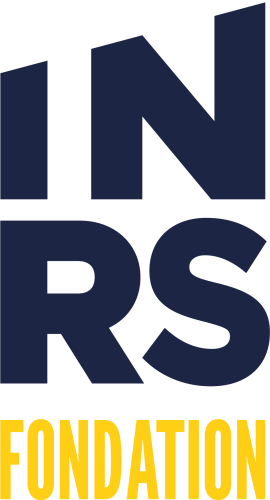At INRS, research and entrepreneurship often go hand in hand. This is the case for Kayoum Djedidi, a doctoral student in telecommunications and winner of a 2024-2025 student scientific entrepreneurship grant, who combines his scientific work with an ambitious entrepreneurial project: Open Organic Robotics (OORB), a start-up that aims to democratize robotics through artificial intelligence.
Thanks to the grant he received from the Foundation and the Strategic Partnerships and Innovation Support Department, Kayoum was able to finance the first OORB prototypes and begin development of the beta version of OORB Studio, an artificial intelligence-infused platform that allows anyone from industry or academia to design, simulate, and test robots without advanced technical expertise.
OORB recently reached a major milestone: the company was accepted into the prestigious Founders Inc Blueprint program in San Francisco, one of the world's most selective programs for deep tech startups. Its team of four co-founders is currently working remotely or on-site to grow the startup and establish new international partnerships.
We spoke with Kayoum to learn more about his background, his experience at INRS, and his vision of scientific entrepreneurship.
Kayoum Djedidi, Ph.D. in telecommunications under the supervision of Professor Tarek Djerafi
- What motivated you to become an entrepreneur while pursuing your PhD?
I have always taken a very hands-on approach to research. During my studies, I was often frustrated to see promising prototypes stuck in labs due to a lack of accessible tools or bridges between research and industry. OORB was born out of this observation: to create a platform that would allow any researcher, student, or engineer to turn an idea into a functional robot without relying on a large infrastructure. For me, entrepreneurship was about extending research to have a concrete impact. - How did your time at INRS help develop your entrepreneurial spirit?
INRS gave me the freedom to explore and connect my research topics to real-world needs. The ongoing support, trust, and discussions with my advisor, Prof. Tarek Djerafi, and access to collaborative projects helped me greatly in developing a global, technical, scientific, and strategic vision. It was also at INRS that I found an environment where multidisciplinarity is valued, where I am free and encouraged to explore my interests without worry, a real testing ground for innovating differently. - You received a student scientific entrepreneurship grant. How did this support have a concrete impact on your project or your motivation to pursue this path?
The FISES grant was a turning point. It enabled me to finance the first OORB prototypes and start developing the OORB studio Beta, which was launched last week to a warm reception from the community. Beyond the financial aspect, it was above all the signal of confidence that I felt: knowing that my university believed in the value of what I was building gave me enormous motivation to see the project through to completion. - How did you feel when you learned that your company had been selected for the Founders Inc Blueprint program in San Francisco?
It was both surreal and rewarding. Founders Inc is one of the most selective programs in the world, and being the only Tunisian team with a founder based in Canada to be accepted was a real recognition of the vision behind OORB. It's also great proof that projects born in an academic setting can compete internationally. - In your opinion, why is it important to encourage student scientific entrepreneurship at INRS?
Because research and entrepreneurship are not two opposing worlds: they complement each other. Members of the student community involved in research have a keen understanding of technical and societal issues, but often lack the tools to transform this knowledge into concrete solutions. Promoting entrepreneurship at INRS means building this bridge between knowledge and action. - And now, what are the next steps for you and OORB?
In the short term, we are working on raising our $500,000 pre-seed fund to take OORB Studio from beta to a full public release. The goal is to consolidate our initial partnerships with SMEs and academics and expand our platform in the US and Canada. At the same time, I am continuing my doctoral research on real-time 5G channel characterization and ISAC systems, which will serve as the basis for the future hardware acceleration engine and add a simulation component for communication and detection in the field of robotics. It's an intense but exciting time: research feeds the startup, and the startup brings research to life.
Kayoum Djedidi's career path illustrates the synergy between training, research, and innovation that characterizes INRS. Thanks to the FISES scholarship, offered by the INRS Foundation in collaboration with the Strategic Partnerships and Innovation Support Department, our student received a boost to bring to fruition a project with strong technological and societal potential.
By supporting members of the student community like him, the Foundation is helping to nurture a new generation of entrepreneurs with a solid scientific background who are ready to transform their discoveries and understanding of major issues into concrete solutions for society.

.png)